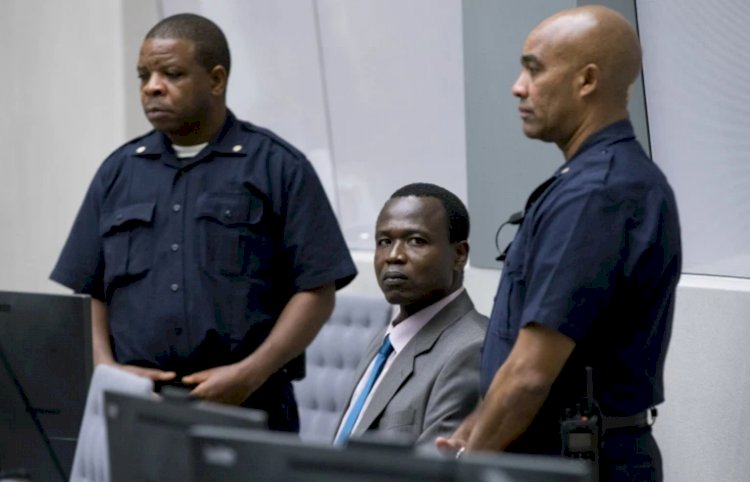ICC finds Ugandan LRA Commander Guilty Of War Crimes
Child soldier-turned-Lord’s Resistance Army commander Dominic Ongwen convicted by Netherlands-based court.

The International Criminal Court has convicted a Ugandan child soldier turned Lord’s Resistance Army LRA commander of war crimes and crimes against humanity. The Netherlands-based court on Thursday found Dominic Ongwen, 45, guilty of 61 charges relating to crimes including murder, widespread rape, sexual enslavement, abducting children, torture and pillaging
carried out in the early 2000s. In a legal first, Ongwen, who was abducted by the LRA as a child, was also convicted by the tribunal in The Hague for the crime of forced pregnancy for atrocities committed against seven women. Judges at the court said Ongwen had acted out of free will in committing the offences between 2002 and 2005. There exists no ground
excluding Dominic Ongwen’s criminal responsibility. His guilt has been established beyond any reasonable doubt, presiding Judge Bertram Schmitt said as he read out the verdict. Ongwen could now be imprisoned for life, though judges will address his sentencing at a later date. His lawyers had asked for an acquittal, arguing he had suffered psychological damage as a result of being
abducted as a child and was a victim and not a victim and perpetrator at the same time. Schmitt said that Ongwen’s history could be considered at the sentencing stage of the trial. But he made clear: This case is about crimes committed by Dominic Ongwen as a fully responsible adult as a commander of the LRA in his mid-to late 20s.
Morally complicated
Reporters reporting from The Hague said Ongwen’s case was “morally the most complicated” the ICC had ever dealt with. The main question has been can a former child soldier be held accountable for the crime he has committed? And the crimes are numerous. The ICC has not seen such a list of war crimes before, she said. [But the] defence has always said that he is
mentally unstable, that he was indoctrinated, [and] he never had a way to form his consciousness. Kristof Titeca, a senior lecturer at the University of Antwerp and an expert witness during Ongwen’s trial, added the case had raised a “huge grey area which is difficult to determine in international law, which thinks in terms of victims and perpetrators. It is a huge dilemma between
structure and agency,” Titeca told the media. Under the leadership of fugitive rebel Joseph Kony, the LRA terrorised Ugandans for nearly two decades as it battled the government of President Yoweri Museveni from bases in the north of the country and in what is now South Sudan, the Democratic Republic of the Congo and the Central African Republic. In 2004, the
Ugandan government referred the conflict with the LRA to the ICC, the world’s first permanent tribunal for war crimes, crimes against humanity and genocide. The United Nations says the LRA killed more than 100,000 people and abducted 60,000 children during its campaign of violence. Military pressure forced the armed group out of Uganda in 2005, and its members
scattered across parts of central Africa. Ongwen surrendered to US special forces who were hunting Kony in the Central African Republic in early 2015 and was transferred to the ICC to face trial. Human Rights Watch HRW said Thursday’s verdict against him was a landmark moment in achieving justice for victims of the LRA. The LRA terrorised the people of northern Uganda
and its neighboring countries for more than two 2 decades. One LRA leader has at last been held to account at the ICC for the terrible abuses victims suffered, said Elise Keppler, associate director of the International Justice Program at HRW. Would-be rights violators should take note that the law can catch up with them, even years later, she added.
